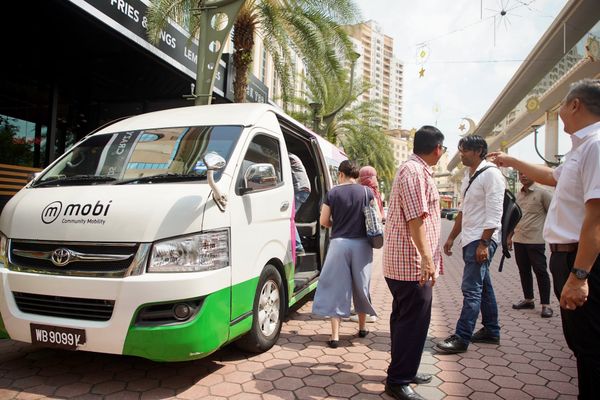By Danial Dzulkifly
SHAH ALAM, 5 July — The state government would face legal consequences and jeopardise passenger safety if it were to appoint transport operators not approved by the Land Public Transport Agency (Apad) to run its demand-responsive transit (DRT) service.
State executive councillor for mobility Ng Sze Han said this was why Asia Mobility Technologies Sdn Bhd and Badanbas Coach Sdn Bhd were selected to conduct the DRT proof of concept (POC) in Selangor, seeing that they had received proper approval.
"The appointment of these two firms is also aimed at obtaining comprehensive data during the POC process of the DRT pilot project. This data will serve as a guide for the full implementation of the service later,” he said in State Legislative Assembly today.
“Appointing companies that have not obtained Apad’s approval would result in the state government facing various problems in terms of non-compliance with current laws and raising safety issues for users.”
Ng was responding to a question from Gombak Setia assemblyman Muhammad Hilman Idham on why the state government had directly appointed the two firms instead of conducting an open tender for the DRT pilot project.
The state executive councillor clarified that the appointment of both firms was also agreed upon by the state’s DRT Pilot Project Implementation Committee after listening to the companies' presentations.
The appointments were subsequently approved by the Menteri Besar Selangor (Incorporated) board of directors, with the support of its Senior Management Investment Committee.
When pressed by Hilman on why the state did not consider appointing other firms such as e-hailing companies or major transport operators like RapidKL, Ng stressed on the distinction between DRT and e-hailing services.
“E-hailing refers to services like Grab, but Grab is not a ride-sharing service. DRT is a mode of transport between buses and e-hailing. It is a shared service and can be booked like Grab but it is only provided within a certain zone.
“Regarding other companies that are supposedly capable of providing the same service, as I mentioned earlier, the important thing is that as a state government, we must follow the law and ensure the safety of users when we want to implement a project.
“We need to refer to the agencies that oversee a particular field which, in this case, is Apad. At that time, only two companies were granted licences. So, the state government only collaborated with these two.”
Ng pointed out that RapidKL had also appointed the same firms as Selangor for its DRT service, namely Badanbas, Asia Mobiliti and Kumpool.
Responding to a supplementary question from Taman Medan assemblyman Dr Afif Bahardin about funding, Ng disclosed that the state has allocated RM2.16 million for both companies to conduct the POC.
However, he said only partial payment has been made, with the rest to be paid upon the completion of the project's trial phase, due by the end of this month.
"The total cost of the project, whether it will be lower or higher, will be reviewed as no one currently has an exact estimate. This is because this is the first time such a service is introduced in the country.”
Ng added that before the project moves towards the full implementation stage, the state will consult Apad once again to see if any other companies have received approval to operate DRT services.
"If there are, we will also invite them for the implementation of the project.”




